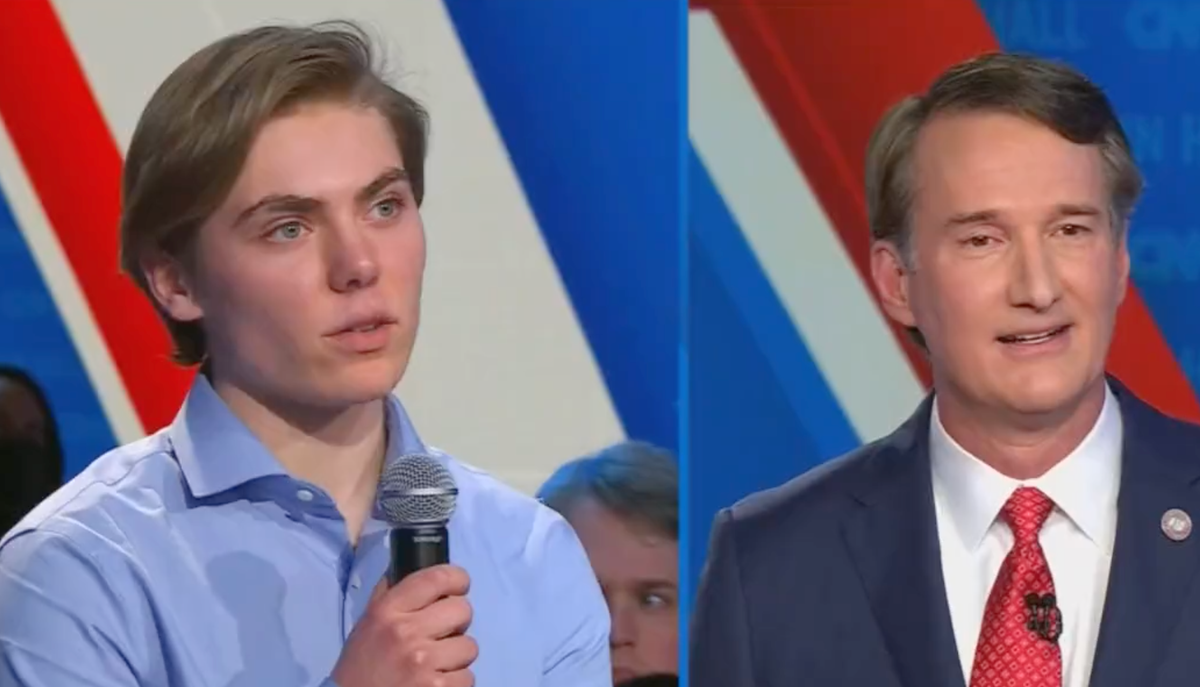
Virginia Governor Glenn Youngkin appeared to dodge a question from a transgender high school student at a CNN-hosted town hall, where the Republican governor rumoured as a 2024 presidential candidate stood by restrictions he imposed against trans students.
The student, a 17-year-old transgender boy named Niko, pressed the governor on the state’s anti-trans policies that would prevent trans students from participating in team sports and using bathrooms consistent with their gender.
“Look at me. I am a transgender man,” he said at the town hall on 9 March. “Do you really think that the girls in my high school would feel comfortable sharing a restroom with me?”
The governor, without answering yes or no, instead invoked his “parents’ rights” agenda.
“I believe, first, when parents are engaged with their children, you can make good decisions together,” he said. “I also think there are lots of students involved in this decision.”
He said he supported gender-neutral facilities, “so people can use the bathroom that they, in fact, are comfortable with.”
But the governor defended his sports measures restricting trans students from team sports, claiming that they are not “controversial” and that “biological boys should be playing sports with biological girls.”
“Again, I think these are very difficult discussions and I am very, very glad to see you and your dad here together,” Mr Youngkin said, as CNN cameras appeared to show them disappointed by his response.
Virginia LGBT+ students and their advocates protested outside CNN’s Washington DC headquarters ahead of the town hall to condemn the governor’s policies.
“Trans students are not your political tool. we are not your punching bag ... We deserve the right to feel safe when we walk through those doors every morning,” one protester said.
Geoff Wetrosky, campaign director with the Human Rights Campaign, said in a statement that the governor “only cares about some parents. He does not care about parents of LGBTQ+ – particularly transgender – students, who have been consistently under attack in Virginia and across the country.”
“He said that there is no room for bullying or harassment in Virginia’s schools, but his own policies only further marginalize and isolate transgender students, creating more stigma and more discrimination against an already vulnerable population,” he added.
Last year, the governor ordered the state’s 133 school districts to adopt policies that would require transgender students to use school bathrooms and participate in team sports consistent with their gender assigned at birth. His proposals also would prevent students from using different names or pronouns at school without parents’ permission.
State lawmakers across the US this year have introduced more than 400 bills identified by the Human Rights Campaign as harmful to LGBT+ Americans. At least 175 measures would specifically restrict the rights of transgender people, the highest number of bills targeting transgender people in a single year to date, according to the Human Rights Campaign.
Dozens of bills are aimed at prohibiting trans youth from accessing medically supported gender-affirming healthcare, and state lawmakers have introduced more so-called “bathroom bills” this year than in any other year.
House Republicans also have reintroduced federal legislation to impose national restrictions against trans women and girls from competing in sports teams consistent with their gender. Far-right Georgia congresswoman Marjorie Taylor Greene also has introduced a measure that would charge people providing gender-affirming support to trans youth with felony crimes.
In an op-ed published by CNN ahead of the town hall, Governor Youngkin defended policies that he said give “parents the ability to provide direct input on education performance standards and proposed policies” by “restoring parents’ ability to be engaged in critical discussions on their child’s gender identification.”
“The heart” of his policies, he told the town hall, “is that parents should know what’s going on in their children’s lives and have a role.”
“And when they do, then, in fact, they can tackle these difficult decisions together as a family,” he added.







